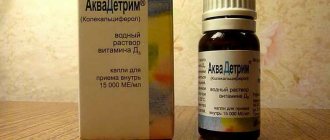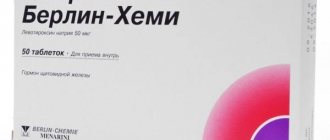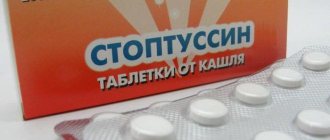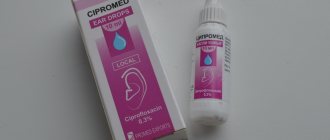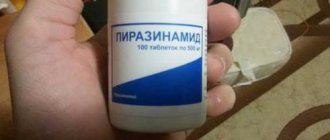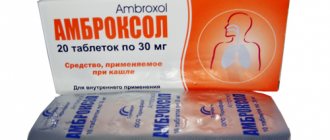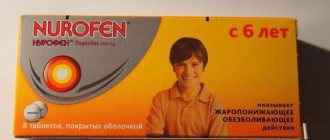We continue to talk in simple language about the mechanisms of action of drugs and today we will discuss the principle of operation of the popular painkiller - Nurofen (read ibuprofen).
The article will be useful for a general understanding of how painkillers work in general, how asthma is related to painkillers, and why taking these medications harms the stomach.
The history of "Superaspirin"
The history of Ibuprofen began in the 50s of the twentieth century, when British pharmacist-researcher Stewart Sanders Adams and his Boots team began research as part of a project to find an effective and safe pain reliever for heparin-histamine relationships in rheumatoid arthritis and others. diseases.
Painkillers and anti-inflammatory medications at the time included hormones and high-dose aspirin, which had serious long-term side effects.
At the same time, the idea was expressed that it was necessary to develop a new painkiller, which should have a higher safety profile and better tolerability than aspirin - it should be a “super aspirin.”
At that time, many of the therapeutic targets and mechanisms of action that we know about today were unknown. In doing so, the researcher focused on studying the anti-inflammatory properties of aspirin in order to understand the nature of its action in more detail.
The main reason for the search was the fact that aspirin as a pain reliever required high doses, which increased the risk of side effects such as allergic reactions and bleeding. Therefore, by 1950 in the UK it ceased to be used as an NSAID* for rheumatoid arthritis.
NSAIDs* are non-steroidal anti-inflammatory drugs belonging to the class of analgesic and antipyretic drugs.
After 8 years of searching for combinations and chemical compounds, in 1958, after screening for activity, the substance BTS-8402 was found, which has good potential for effectiveness. It moves to the next stage - the stage of clinical trials. But the first research results did not show that it had no advantages over acetylsalicylic acid and a resonant discovery did not occur.
In 1962, ibuprofen was registered by the British Patent Office under the trade name Brufen, and seven years later it was approved as a prescription drug for the treatment of rheumatoid arthritis.
Today, ibuprofen has become one of the most popular drugs in the world and is produced under various trade names around the world (MIG-400, Ibuprofen, Nurofen, Brufen, etc.). The drug is produced in more than 120 countries and is effectively used in the treatment of various types of pain and fever.
From the memoirs of Dr. Adams: I still get the thrill of being the first person to take an ibuprofen tablet. It's funny that the reason for this was a headache from a hangover
Composition of Nurofen
This drug belongs to the group of non-steroidal anti-inflammatory drugs that have an affordable price. The composition of Nurofen depends on the form of release of the product. The instructions for use describe the following composition of the tablet:
- ibuprofen, 200 mg;
- silica;
- sucrose;
- stearic acid;
- talc;
- gum;
- titanium dioxide;
- sodium lauryl sulfate;
- opacode;
- croscarmellose sodium;
- macrogol 6000.
If we consider other forms of the drug Nurofen, its instructions for use contain the following information: the suppositories contain 60 mg of ibuprofen, the rest is solid fat. The suspension has other components, the main one is ibuprofen - its amount is 5 ml per 100 mg of the composition. Additional substances:
- maltitol syrup;
- glycerol;
- sodium citrate;
- lemon acid;
- gum;
- sodium saccharinate;
- domiphene bromide;
- sodium chloride;
- flavoring – orange, strawberry;
- water.
Use of Nurofen during pregnancy and breastfeeding
It is forbidden to be treated with this remedy in the third trimester, and in the first six months of pregnancy - only after consultation with the attending physician. Ibuprofen, which is included in the medication in small quantities, can pass into breast milk. No negative effects on the baby’s health have been identified with short-term use of the drug. However, Nurofen is contraindicated for long-term use during breastfeeding. If the doctor insists only on this remedy, then breastfeeding should be stopped. The issue of restoring breastfeeding is decided individually.
How does Nurofen work?
The action of the drug is based on the suppression in the body of the main ingredient - ibuprofen - of active substances that contribute to the development of inflammatory processes, fever, and pain. The drug is effective for 8 hours, then it is eliminated from the body in feces and urine. When the gel is used topically, a limited area is treated. The action of Nurofen promotes:
- decrease in temperature;
- reducing inflammation;
- reduction of edema;
- active pain relief;
- stimulating the development of immunity.
Nurofen - indications for use
Possessing strong analgesic and anti-inflammatory properties, the product is used to treat adults and children. Doctors have excellent reviews of Nurofen when:
- viral infections;
- toothache, headache;
- neuralgia;
- rheumatoid arthritis;
- migraine;
- pain in the back, stomach;
- bursitis;
- rheumatism;
- gout;
- myositis;
- joint and muscle pain;
- osteoarthritis;
- myalgia;
- sprains, bruises;
- elevated temperature;
- pain during menstruation;
- diseases of the ENT organs;
- the child has a fever;
- neuritis.
How long does it take for Nurofen to work?
According to the instructions for use, the drug is absorbed by the intestines and enters the blood. The fastest result is when using rectal suppositories. How long does it take for Nurofen to start working? The time depends on its release form:
- candles for children – 10 minutes;
- suspension - a quarter of an hour;
- drugs for adults – up to 30 minutes;
- express forte composition – quarter of an hour.
Reviews about Nurofen
Many reviews of Nurofen tablets indicate that the drug is effective for various types of pain. In particular, it helps against toothache and headache. The product is also effective as an antipyretic drug. Gastrointestinal problems and allergic reactions are most often mentioned as side effects in reviews. Reviews of the gel also indicate that the drug is an effective pain reliever. However, there are also reviews that write about the ineffectiveness of the product for back pain, and also mention that the gel relieves discomfort only for a short time.
Nurofen instructions
The drug has a strong therapeutic effect, so before use you should read the instructions and learn about contraindications and side effects. The use of the medicine in adults is incompatible with alcohol. According to the instructions, it is recommended to take the tablets after meals and wash them down with water. According to the annotation for the drug, it has several release forms:
- coated tablets;
- capsules;
- baby liquid suspension;
- effervescent tablets;
- ointment;
- rectal suppositories;
- gel.
The instructions for the drug Nurofen stipulate:
- permissible doses of medication for children and adults;
- inability to use independently for more than 3 days;
- if there are no results or side effects, consult a doctor;
- during administration, symptoms are eliminated without treating the cause;
- use of the gel after 12 years;
- negative impact on working with complex devices and driving;
- inability to simultaneously take other non-steroidal anti-inflammatory drugs.
Instructions for use of the drug in the treatment of chronic diseases recommend:
- periodically do a biochemical blood test;
- if side effects occur, stop treatment;
- use caution when combining the drug with diuretics and painkillers;
- if it is necessary to use steroid hormones, discontinue the medication 2 days before.
Nurofen children's syrup - instructions for use
The liquid form of the product has a pleasant taste; for convenience, the package contains a special measuring spoon. If Nurofen syrup is prescribed, the instructions for use for children prescribe its use, depending on age, three times a day, after meals. Shake the suspension before use. Single maximum dose, ml:
- 3 to 12 months – 2.5;
- 1-3 years – 5.0;
- from 4 to 6 years – 7.5;
- 7-9 years – 10.0;
- from 10 to 12 and older – 15.0.
Nurofen suppositories for children
A very convenient form of using the medicine for children, especially when there are problems taking the medicine in another form. Nurofen suppositories have a low price, have a quick effect, reducing high fever during colds. They are placed in the child's anus. The parent carefully inserts the candle with his finger, pushing it to the depth of the middle of the second phalanx. This way you can treat for a maximum of three days. Recommended scheme:
- from 3 to 9 months – a candle three times a day;
- further (up to 2 years) - a suppository every 6 hours.
Nurofen tablets
If the drug is purchased in capsules or film-coated tablets, they do not need to be chewed during treatment: the medicine is swallowed with a small amount of water. How to drink Nurofen in effervescent form? The drug must be taken in liquid form within 15 minutes. To obtain a solution, Nurofen tablets are placed in half a glass of water. To treat pain and inflammation, it is possible to use an analogue - the drug Ibufen.
Nurofen-gel - instructions for use
The drug in this form is used for local effect on the diseased area. Nurofen-gel is available in tubes of 50 and 100 grams and has a reasonable price. It should not be applied to open wounds, damaged areas of the skin, or areas near the eyes. It is recommended to use the drug four times a day. If after 2 weeks the condition does not improve, you need to stop using it and consult a doctor. Apply the gel as follows:
- squeeze out up to 10 cm of composition;
- Rub in with massage movements until absorbed.
- Rosehip - beneficial properties and contraindications. What is the benefit of rosehip decoction and what diseases does it help with?
- Fibrocystic mastopathy - symptoms and treatment. Signs of the disease
- Almond oil - medicinal properties and uses. Use of almond essential oil in cosmetology
Mechanism of action of painkillers
Painkillers are presented in different groups, but in this article we are talking about those that you can easily buy at the pharmacy without a prescription - NSAIDs.
The spectrum of action of these drugs is associated with 4 pharmacological effects - antipyretic, analgesic, anti-inflammatory and blood thinning * - The difference in the strength and manifestation of these effects differs from drug to drug.
| Pharmacological effects of painkillers | |
| Anti-inflammatory | It appears within a few days. The development of the second and third phases of inflammation is limited. The maximum severity of the anti-inflammatory effect is found in pyrazolones (except analgin and amidopyrine) > salicylates (aspirin) > indoleacetic acid derivatives > phenylacetic acid derivatives > phenylpropionic acid derivatives (nurofen). |
| Analgesic (pain reliever) | Occurs within hours. If the pain is associated with a weak inflammatory reaction, use non-narcotic analgesics. Pain mediated by inflammation is affected by drugs with the most pronounced anti-inflammatory effects. |
| Antipyretic | In a few hours. If the patient does not tolerate a subfebrile temperature of 37-38 (the body's protective reaction due to increased activity of phagocytes and interferon production, increased release of lysosomal enzymes) - derivatives of aniline, salicylic, phenylacetic acids. In case of sudden changes in temperature during the day (hectic temperature) - analgin, amidopyrine. |
| Antiplatelet (blood thinning) | Aspirin has the greatest activity, irreversibly affecting platelet COX enzymes |
In 1971, J. Vane, J. Smith and A. Willis identified the mechanism of action of painkillers, which is associated with inhibition of the synthesis of COX (cyclooxygenase), a key enzyme in the metabolism of arachidonic acid. Arachidonic acid is a precursor of prostaglandins (PGs).
Almost all painkillers have a common mechanism of action. This means that having understood how Nurofen (ibuprofen) works, we will also understand the mechanism of action of other drugs in this group.
Nurofen dosage
The instructions stipulate how to take Nurofen for adults. The duration of use depends on the nature of the disease and the symptoms present. Tablets for adults are approved for use by children weighing more than 20 kg. The usual regimen - three times a day - can be increased to four in case of severe manifestations. The maximum daily dosage for adults should not exceed 1200 mg. Doctors prescribe the following for one appointment with an interval of at least 6 hours:
- to reduce muscle, dental, menstrual, traumatic pain – 200 mg;
- in order to accelerate the effect - 400 mg.
If inflammation and pain accompany chronic diseases, long-term use of the drug is required. When rheumatoid arthritis occurs in a child, the daily dose is calculated at 30 mg per kilogram of weight and divided into 4 doses. The drug is consumed three times a day. The dosage depends on the cause:
- arthritis, osteoarthritis – 600 mg;
- muscle and tendon injuries – 600 mg;
- rheumatoid arthritis – 800 mg;
- severe pain during menstruation – 400 mg.
Nurofen for children
The drug, having a low price, is considered among pediatricians to be an effective remedy for combating the symptoms of infections. The instructions stipulate its use in conjunction with other medications that affect the causes of the disease. Antipyretic for children is produced in the form of syrup and rectal suppositories. In addition, the drug helps in case of:
- childhood infections;
- teething;
- reactions to vaccinations;
- flu;
- pain in the throat, ears;
- muscle and ligament injuries;
- inflammation of the joints.
Nurofen for breastfeeding
When a mother needs Nurofen while breastfeeding (BF) a child, the instructions for use limit its use. The drug passes into milk and may cause an undesirable reaction in the baby. If acute inflammation occurs, the main symptoms can be relieved within two days. During this time of taking Nurofen for breastfeeding, you must:
- refuse to feed the child;
- switch to mixtures;
- express milk so it doesn’t go to waste;
- Find a safe drug with your doctor.
Nurofen during pregnancy
Particular care should be taken when using the medicine while expecting a baby. The use of Nurofen during pregnancy should be agreed with a gynecologist. The appointment depends on the timing:
- The first two trimesters - only if a threatening situation arises for the woman, taking into account the risk to the child. At these stages, there is a risk of improper development of the genital organs of boys.
- In the third - a categorical prohibition - uterine contractions are possible. There is a threat of termination of pregnancy.
Helpful information
According to reviews from both parents and children's doctors, Nurofen for children is recognized as one of the fastest-acting drugs with anti-inflammatory, analgesic and antipyretic effects.
How quickly does this medicine work? This depends on the form in which the drug was used. On average, the result is noticeable after fifteen minutes and lasts from six to eight hours. A decrease in temperature is observed half an hour to an hour after taking it. Among children's forms, suppositories administered rectally have the fastest effect. The effect is visible in literally five to ten minutes. The intensity of pain, the course of the disease and the individual characteristics of the little patient should not be discounted.
How to give Nurofen to a child? Take it on an empty stomach, during and after meals. In the first case, the effect will occur faster in about forty-five minutes. In other cases, this will take about two hours. It is important to follow the dosage and duration of use recommended by the doctor - no more than three days to relieve fever, no more than five to get rid of pain.
What does Nurofen help with? Doctors often prescribe it to reduce symptoms caused by colds, infections, viral pathologies, as well as post-vaccination adverse events in the child’s body. In addition to the above, it will help:
Nurofen price
The drug comes to Russia from Great Britain and Greece, its cost depends on customs costs and the seller’s markup. The medicine should be ordered from an online pharmacy or bought at a nearby one. How much Nurofen costs can be seen in the table:
| Release form | Dosage, mg | Quantity, pieces (ml, g) | Price range, rubles |
| Coated tablets | 200 | 10 | 95-120 |
| Children's suspension | 100/5 ml | 150 | 120-210 |
| Gel 5% | 50 | 150-320 | |
| Nurofen forte | 400 | 12 | 105-240 |
| Candles | 60 | 10 | 110-150 |
Features of the drug in suppositories
The selection of the Nurofen dosage depends on the baby’s weight and age. It doesn’t matter whether you use candles before or after meals. The main thing is a short course and a minimally effective dose that can quickly eliminate negative symptoms.
It should be noted that the medication in this form of release is an ideal solution when it is impossible to take medications orally. It can be stored at room temperature and is convenient to take on the go. The duration of action, which is about eight hours, will allow the child to get enough sleep.
Nurofen - side effects
Although the drug has good reviews and a low price, its long-term use is not recommended. In case of overdose, side effects of Nurofen are observed. So, there arise:
- stomach bleeding;
- headache;
- confusion;
- insomnia;
- excitation;
- nausea;
- noise in ears;
- vomit;
- disorientation;
- exacerbation of asthma;
- blurred vision;
- rash;
- increased blood pressure;
- itching;
- constipation;
- dry mouth;
- diarrhea;
- convulsions;
- respiratory depression;
- heartburn;
- convulsions.
Drug interactions Nurofen™
Concomitant use of the drug with:
- acetylsalicylic acid or with other NSAIDs and GCS drugs (the risk of adverse reactions from the gastrointestinal tract increases);
- anticoagulants (increasing the effect of oral anticoagulants and increasing the risk of bleeding).
Use the drug with caution at the same time as:
- antihypertensive drugs and diuretics (increased risk of developing a reaction from the kidneys);
- methotrexate and lithium drugs (increased levels of these drugs in the blood plasma);
- cyclosporines (increases the risk of nephrotoxicity).
Nurofen - contraindications
It will be better if this drug is prescribed by a doctor, taking into account the characteristics of your body. Although the product is available and has a low price, there are contraindications for Nurofen. The use of the drug for erosions, gastrointestinal ulcers, as well as for:
- renal failure;
- ulcerative colitis;
- severe liver disease;
- hemorrhagic diathesis.
- hyperglycemia.
The use of the medicine is not recommended for:
- diseases of the optic nerve;
- liver failure;
- ulcerative bleeding;
- hemophilia;
- bronchial asthma;
- ulcer perforation;
- heart failure;
- pregnancy in the 3rd trimester;
- severe hypertension;
- lactation;
- fructose intolerance;
- allergies to components;
- the child is less than 3 months old.
Overdose symptoms
If the dosage is exceeded, symptoms appear:
- Epigastric pain;
- Nausea, sometimes vomiting;
- Loose stools;
- Hypotension;
- Rapid pulse.
If symptoms occur, you should consult a doctor. Before visiting a specialist, wash the stomach yourself, no later than 60 minutes after the appointment, and take enterosorbents.
Using the correct dosage of the drug, you can get a good analgesic, antipyretic and anti-inflammatory effect.
Children over 12 years of age can be given other forms of Nurofen.
Upon reaching this age, the medicine can be given in another form. Children over 12 years of age are advised to use medications intended for adults. The dosage of medications will also be increased. Nurofen Express preparations (capsules), Nurofen tablets are taken 200 mg up to 4 times a day. The medicine “Multisymptom” is recommended 1 pill up to 3 times a day.
Nurofen Forte tablets contain a double dose of the active substance. They contain 400 mg of ibuprofen. This drug is prescribed to children over 12 years of age, 1 tablet no more than 4 times a day. This medication is usually used when other forms of the drug are ineffective.
Recommendations for admission
The price of Nurofen suppositories for children is 120 rubles, which makes the drug affordable for everyone.
The drug is indicated for the following diseases and conditions:
- flu;
- respiratory diseases;
- pathological reaction to vaccinations;
- pain in various parts of the body: ears, joints, throat.
In addition, this drug is indicated if you have problems swallowing tablets or with an increased gag reflex. It is important to remember that Nurofen suppositories for children (price listed above) are contraindicated in the following cases:
- kidney and liver diseases;
- stroke;
- violation of the integrity of the rectum;
- low body weight;
- poor blood clotting or insufficient potassium content;
- hypersensitivity to individual components of the product;
- respiratory pathologies: rhinitis, asthma, polyps.
You should stop using this remedy if an ulcer develops. The presented medication is also contraindicated for diseases of the gastrointestinal tract.
The use of Nurofen is contraindicated in the last trimester of pregnancy, because at this stage the nervous tissue and brain of the child are formed. Such a remedy can lead to cerebral palsy.
In the first 4 months of pregnancy, this medication can be taken under the supervision of a doctor. In this case, the doctor must assess the risk of intrauterine fetal pathologies.
Breastfeeding women should avoid using this medicine. If you need to take this drug, you should stop breastfeeding for at least 12 hours after using the drug.
Description of the medicine for children
What is the composition of Nurofen? Tablets contain 200 mg of active ingredient (ibuprofen). The preparation also contains additional components: sodium cellulose, carmellose, sodium lauryl sulfate, sodium citrate, stearic acid, colloidal silicon dioxide, talc, titanium dioxide, copper, sucrose, black ink and so on.
Nurofen is produced in tablets for children, 8 pieces per pack. The average cost of such a product does not exceed 150 rubles. Each tablet is coated for ease of use.
Additional information about restrictions
The instructions for use also describe other restrictions on the use of the drug Nurofen. 200 mg tablets should be taken very carefully and only after prior consultation with your doctor in the following situations:
- renal and liver failure;
- coronary disease and diabetes mellitus;
- if the child has an allergy, the correction of which is carried out with oral corticosteroids;
- diseases of the stomach and intestines of varying nature and severity.
The annotation also states that under adult supervision the medication should be given to children under 12 years of age.
Drug substitutes: structural analogues and other drugs with the same effect
There are many substitutes for Nurofen (tablets). Analogs have identical active ingredients. Pay attention to the ibuprofen content. After all, it may differ. Therefore, the method of application and dosage will be different. The most popular analogues include Advil, Ibuprofen, Brufen, Burana, Mig, Dolgit and others.
You can also replace the medicine with many other analgesics with an antipyretic effect: Aspirin, Citramon, Paracetamol, Panadol, Analgin and so on. All analogues of the drug must be selected by a doctor after taking into account all individual characteristics. Please note that medications based on acetylsalicylic acid can only be given to children over 16 years of age. They are in no way suitable for treating younger patients.
